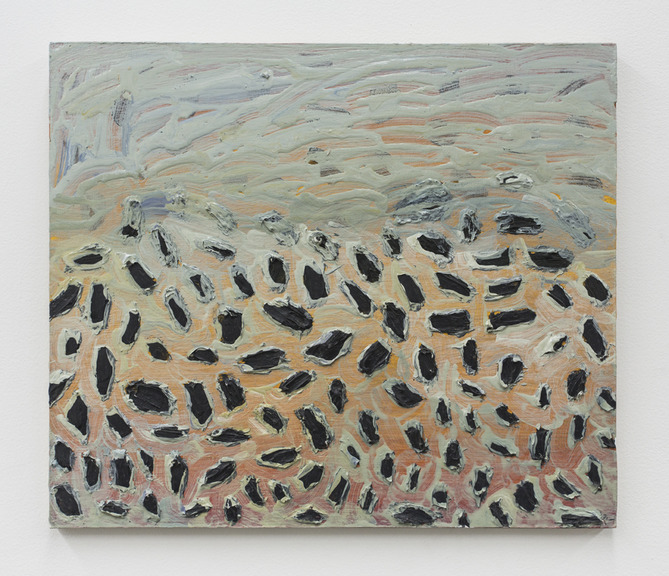
dccon1: narrabantur
Betty Bailey
Philip Evergood
Ficus Interfaith R+P
Jacob Lawrence
Daido Moriyama
Annabelle Speer
S. Clay Wilson
Organized by William Dintenfass
July 30th - September 11th, 2016
Opening reception:
Saturday July 30th 2016, 7-10pm
For immediate release:
The experience of life teaches nothing, just as history teaches nothing. True experience comes from restricting our contract with reality while increasing our analysis of that contract. In this way our sensibility becomes broader and deeper, because everything is in us — all we need to do is look for it and know how to look.
-Fernando Pessoa, The Book of Disquiet
U.S. Blues is pleased to present dccon1: narrabantur, an exhibition organized by William Dintenfass. The exhibition features work by Betty Bailey, Philip Evergood, Ficus Interfaith R+P, Jacob Lawrence, Daido Moriyama, Annabelle Speer, and S. Clay Wilson.
Some notes from the exhibition's organizer:
…Betty Bailey has three watercolor/pencil drawings on paper in the show. Two drawings depict nude humans in motion and in the art studio, while the other is the inside of a Marijuana Manor…I’ve known Betty beyond memory. I fired my first potato canon at her house…
…Philip Evergood has one painting in the show. Country Still Life, 1956, is oil on board. The image is a country still life…I grew up around the work of Jacob Lawrence and Philip Evergood. I never really thought anything of it until I had enough time to engage with it on my own terms. It wasn’t a moment for me, but a long process…
…Ficus Interfaith has five sculptural objects in the show: a terrazzo interpretation of Nebuchadnezzar's dream with a poem inlayed into the work in brass, two ferrocement planters and two ferrocement chairs. Ficus left the curation of inhabiting plants up to me. I've chosen one plant from my backyard and one set of plants from my worksite, Fort Tilden, where I am currently doing conservation work…I saw Ficus' work in a show a couple years ago. It was in an older house upstate. They replaced a stone in a chimney with a patterned concrete stone they made and covered the floor of two sheds with homemade potpourri. We were originally going to make a wall for this show but they decided on the terrazzo instead…
…Jacob Lawrence has one lithograph in the show. Two Rebels, 1963, was published by Terry Dintenfass Gallery, printed by George C. Miller & Son, New York. This image derives from the painting The Rebels, also 1963, which depicts two men being carried by four policemen. Throughout the 1960s, Lawrence continually worked with images pertaining to the struggle for civil rights in the United States…I particularly like Lawrence’s interpretation of space in this piece...I showed this litho to a friend who liked it but was concerned about Jacob Lawrence being a white man depicting African American culture. I explained that Jacob Lawrence is not white...
…Daido Moriyama has one photograph in the show. Three Views of Japan No. 3 - Mutsu Matsushima, 1974 is part of the artist’s larger effort photographing post-WWII Japan…I’d never seen anything like Daido Moriyama, never seen anybody push and pull black and white photography in such a manner, embracing grain and disregarding the conventions of dodging and burning…
…Annabelle Speer has three abstract paintings in the show. They focus on explorations of the materiality of paint through visual references to the landscape, weather patterns and atmospheric conditions…I saw a painting of hers in a group show. It was a beautiful painting with blue dots. I liked it so I told her. She told me it was hung upside down…
…S. Clay Wilson has one print in the show. Rotting Zombie Harpies Dispatch a Vampire is published by U.S. Blues, printed by me at Renaissance Press, New Hampshire. Drawn in 1985, Rotting Zombies Dispatch a Vampire, is printed in photogravure with an edition of 45 with 5 AP. Any proceeds will be donated to the special needs trust for S. Clay Wilson…I met (S. Clay) Wilson before I can remember. He dated my aunt. My last memory of him was at my family's Thanksgiving where he and his friend got very drunk and tormented me and the other children. Pretty soon after he and my aunt broke up…
As I get older, I find it harder to remember, to stay present in account for the events and experiences of my life. Events lose their chronology, old friends lose their faces, affectations get wiped over, smoothed out to a flat past, never quite lived in the moment. When we asked him about the show, William told us that he wanted to “elucidate the accuracy of representation provided by abstraction within spectrums of narratives.” Admittedly, I don’t know what Will meant by this. I do, however, understand the relationships that move through him to always leave a trace, one that his perversity is always looking to engage and renegotiate. I accept his relationship to narrative as a binary condition onto which he attempts to use himself to confrontationally nurture. He stands in the middle of his own experiences, in an effort to interrupt his own way and bring others along with him. Much of the work in the show was made several years- in some cases several decades- prior to the occasion of the exhibition, and would have otherwise been left to dust. The expense of labor and time at which these pieces were found and revived was difficult and elaborate. The works have come at the behest of many phone calls, emails, studio visits with artists long buried in basements and personal relationships to careers, ideologies, contextualizations past. This process of persistent negotiation and enthusiasm prolongs and interrupts the objectivity of these previous discourses, and in turn a deeper intimacy emerges through the perversions of his detours. It keeps both Will and the artists surrounding him engaged in a contract of passage. The selections in the show are both complicit in, and exemplary of, this method of prolonged engagement; dog-eared perversions of a lived biography providing traction against the forgetting brought by the smoothness of time. Like footprints in the snow that is already the memory of water, their peripheral histories signal to a common origin as an involuntary rescue of clarity.






Betty Bailey







Philip Evergood


Ficus Interfaith R+P













Jacob Lawrence


Daido Moriyama


Annabelle Speer




S. Clay Wilson
